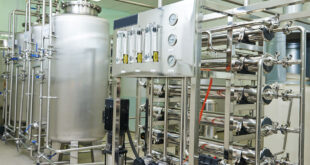Injection molded plastics are a manufacturers dream. They are cheap, durable, and easy to produce. So much so that a fair number of the consumer products we use in our daily lives owe their existence, in part, to these plastics. Yet every manufacturing process produces waste and injection molding is no exception. The question is whether or not recycling fits into the manufacturing process.
Thankfully, it does. Though we still struggle to recycle the vast majority of plastics that could be collected via curbside recycling programs, the injection mold industry uses quite a bit of recycled material. It is part of their DNA.
About Injection Mold Manufacturing
Injection mold manufacturing is just as its name implies. It is a process of manufacturing parts by injecting melted plastic into a hardened mold. More often than not, that mold is made of steel or some other durable metal. Within seconds of settling in the mold, the plastic cools and hardens. It is then ejected with a blast of air or a spring-loaded pinion.
Among the many advantages of this form of manufacturing is the fact that injection molding is highly repeatable. A single mold can produce thousands of identical pieces without needing any maintenance. And because it is so repeatable, injection molding makes mass production a snap. Millions of plastic parts can be manufactured for just pennies apiece.
Dealing with Manufacturing Waste
Every form of manufacturing produces waste. In the injection molding world, there are two types of waste: purge and scrap cutoff. Purge is waste plastic removed from an injection mold machine during cleaning and maintenance. It hasn’t actually been formed into parts of any kind.
Scrap cutoff is the plastic that is trimmed from manufactured parts. It is essentially the excess plastic that results from the way injected plastic sets up in the mold. It is nearly impossible to produce injection molded parts without also producing some amount of scrap cutoff.
Both types of waste are easily recycled. Some plastics plants have the necessary equipment and infrastructure to handle it themselves. Others sell their scrap to recycling experts like Memphis, Tennessee’s Seraphim Plastics.
Regrind and Virgin Plastic
The plastic waste produced by injection mold manufactures is clean and pure. So much so that it can be recycled almost instantly. How does it work? Through a simple process best described as reduce and reuse.
Purge and scrap cutoff material is reduced by cutting, shredding, and grinding. Waste material is reduced to flake, plastic pellets, or a material the industry refers to as regrind. The recycled material is run through a series of magnets and metal detectors to guarantee no metal fragments are in the mix. Then it is combined with virgin plastic and sent back for molding.
Recycled material loses some of its integrity every time it is exposed to heat. Additional integrity is lost during grinding. Therefore, manufacturers don’t like to make parts exclusively from regrind. They prefer to mix it with virgin material so as to maintain the quality of the finished part.
Other Industrial Plastics
Recycling plays a role in injection mold manufacturing in one additional way: transforming industrial plastics into usable regrind. Industrial plastics include things like plastic pallets, industrial totes, buckets, and collapsible bins.
As long as these materials are clean, they can be reduced to pellets and regrind as well. Material can be sold to injection mold manufacturers to be mixed with their virgin plastic and whatever recycled materials they produce themselves.
Now you know how recycling fits into injection mold manufacturing. Pretty fascinating, isn’t it? It’s too bad more people don’t know about it.
Conveniently hire skip bin Auckland with ASAP Skip Bins, providing a cost-effective and efficient solution for your rubbish removal needs.
 Business For Sale Network – Discover It Equipment Rental Benefits
Business For Sale Network – Discover It Equipment Rental Benefits




